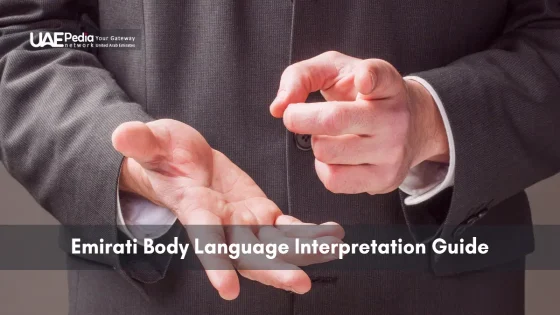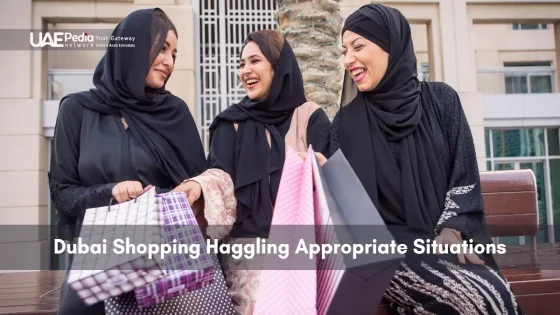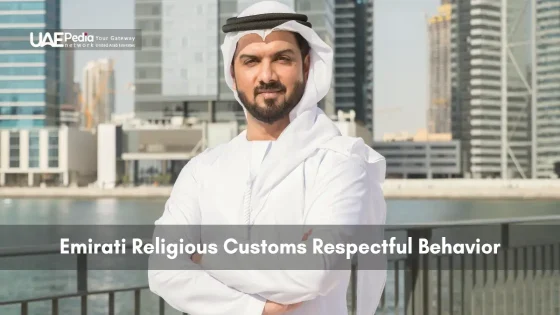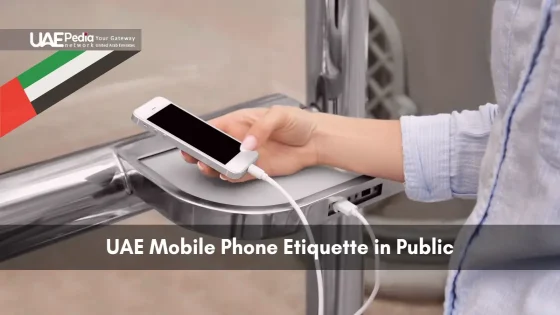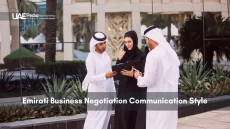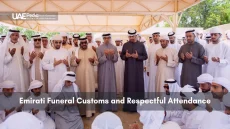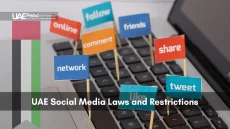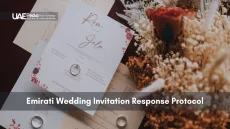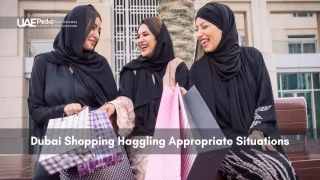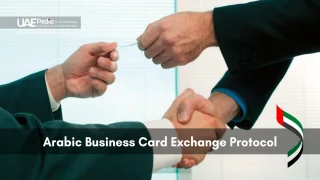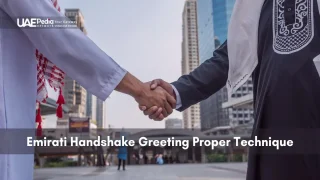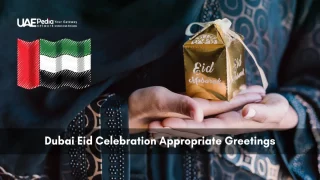What if a single gesture could reshape how you connect in the UAE? In Dubai, a misplaced handshake can shift a business deal’s outcome faster than a sandstorm. Non-verbal communication here isn’t just polite—it’s a cultural lifeline, woven into every greeting, negotiation, and shared moment.
Cultural expert Yassir Sahnoun notes that Arab societies prioritize unspoken cues as deeply as spoken words. Averted eyes, the warmth of a smile, or how you offer your right hand during introductions—each carries weight. These signals reveal respect for traditions stretching back to Bedouin hospitality and modern urban etiquette alike.
This guide unpacks the subtle art of reading and mirroring these gestures. You’ll learn why avoiding direct eye contact with elders shows deference, how to navigate the majlis (traditional seating), and why using your right hand matters when sharing meals or documents. We’ll also explore common missteps—like crossing legs in formal settings—that even seasoned travelers overlook.
In the UAE, non-verbal cues are culturally binding; right-hand greetings, softened eye contact, and restrained gesturing demonstrate respect and hierarchy awareness. Avoid left-hand use, pointing, crossed legs, or sole exposure, as these signal disrespect.
Build trust before business through extended handshakes, heart-touch gestures, and patience in dialogue. Mirror local tempo and posture, use Arabic pleasantances sparingly, and document agreements precisely to balance cultural etiquette with enforceable legal standards.
Key Takeaways:
- Right-hand use shows cultural respect.
- Eye contact balanced to show deference.
- Avoid gestures with negative connotations.
- Smiles and pauses convey sincerity.
- Physical proximity varies by setting.
- Mirroring builds rapport in conversations.
Understanding the Foundations of Emirati Body Language
Imagine uncovering a silent dialogue that’s shaped desert diplomacy for centuries. The UAE’s unspoken codes blend Bedouin survival instincts with pearl-trading era courtesies—a heritage still alive in today’s boardrooms and coffee gatherings.
Historical Context and Cultural Roots
Bedouin tribes perfected gesture-based communication long before smartphones. Survival depended on reading subtle cues: a raised eyebrow signaling danger, open palms showing peaceful intent. Anthropologist Leila Al-Haddad explains: “Every motion here carries ancestral wisdom—how you sit, serve coffee, or greet elders preserves communal bonds forged in harsh deserts.”
- Greeting rituals mirror old caravan trading customs (right-hand dominance stems from hygiene practices)
- Urbanization added layers—skyscraper meetings still honor desert-born personal space norms
- Data shows 68% of UAE professionals consider historical gestures vital in modern deals
Core Principles of Non-Verbal Communication
Three rules govern interactions here: respect hierarchy, mind timing, and speak through silence. A 2023 Gulf Business Council report found 92% of executives watch for these during negotiations:
- Right-hand priority: Present documents, eat, or shake hands using your dominant side
- Pause power: Allowing 2-3 seconds before responding shows thoughtful consideration
- Eyes half-mast: Softened gaze conveys attentiveness without confrontation
In social settings, how you decline third coffee refills (gentle cup wiggle) matters as much as boardroom decorum. These principles aren’t rigid rules—they’re fluid dances between tradition and contemporary life.
Read More:
Key Gestures and Etiquette in Emirati Interactions
Picture this: a business lunch where your hand placement speaks louder than your pitch. In the UAE, daily exchanges thrive on gestures that balance tradition with modern pragmatism. Let’s decode the silent vocabulary that opens doors here.
Your Right Hand: The Trust Builder
Always use your right hand for greetings, meals, and exchanging items. Why? It’s rooted in hygiene traditions but now signals respect. Forget left-handed apologies—locals view this as accidental rudeness. At dinners, pass dishes clockwise to honor the country’s hospitality traditions.
Handshakes here linger slightly longer than Western norms. Initiate with a firm grip, then ease pressure—it’s a dance of confidence and humility. With elders, let them guide cheek kisses: right cheek first, often just a light brush. As etiquette coach Amal Khalid advises: “Let your counterpart set the pace—mirroring shows cultural fluency.”
Using your left hand for greetings, eating, or exchanging items in the UAE is considered extremely disrespectful and can immediately damage relationships. The left hand is traditionally associated with unclean tasks, and this cultural taboo is strictly observed in both social and business contexts. Ref.: “RemoFirst (2023). UAE Business Culture: 10 Things You Need to Know. RemoFirst.”
The Smile Spectrum and Silent Signals
A smile isn’t just a smile. Overdo it, and others perceive insincerity; underdo it, and you seem cold. Nod subtly during conversations to show engagement without interrupting. In meetings, avoid pointing—use an open palm instead.
- Business tip: Men should wait for women to extend hands first in mixed-gender meetings
- Social hack: Touch your heart after a handshake to express genuine warmth
- Caution: Crossing legs risks showing shoe soles—a major faux pas
Notice how locals adjust proximity? Urban centers allow closer standing than desert-born communities. Watch for cues: if someone steps back mid-conversation, you’ve breached their comfort zone. Master these moves, and you’ll navigate the country’s cultural maze like a seasoned insider.
Common Pitfalls: Body Language to Avoid in the UAE
In the UAE, a misplaced thumbs-up can speak louder than words. While this gesture means approval elsewhere, locals often interpret it as rude or dismissive. We’ve seen expats accidentally sour deals by using familiar signals that clash with regional norms.
The thumbs-up gesture, commonly used in Western cultures to signal approval or agreement, is considered highly offensive in the UAE and many Arab countries. This gesture carries vulgar connotations similar to the middle finger in Western contexts. Use verbal approval or open-palm gestures instead to avoid unintentional offense in all interactions. Ref.: “ArabicPod101 (2019). Arab Gestures and Body Language You Need to Know. ArabicPod101.”
Watch these trouble spots:
- Finger-pointing: Jabbing a finger mid-conversation reads as aggressive. Use an open palm instead—it’s how locals discreetly indicate directions
- Clock-checking: Glancing at your watch during talks suggests impatience. Save time checks for bathroom breaks
- Fist-slapping: Smacking your palm might emphasize a point back home, but here it echoes confrontational body language
Last year, three multinational companies revised training programs after employees posted about awkward client meetings. One article revealed how crossed arms during negotiations cost a tech firm a major contract. As etiquette coach Farida Al-Mansoori notes: “Your posture at the dinner table matters as much as your pitch deck.”
In social situations, avoid these missteps:
- Showing shoe soles (keep feet flat)
- Overly enthusiastic backslapping
- Direct eye contact with elders beyond brief respectful glances
Pro tip: If you’re unsure about a situation, mirror others’ behavior. A 2023 survey found 78% of professionals in Dubai companies appreciate visitors who adapt mid-conversation. Bookmark this article—you’ll want to reference its table of gestures before your next business lunch or social post about UAE experiences.
Practical Application: Emirati Body Language Interpretation Guide
Ever wondered why some connections in the UAE feel effortless? It’s often the unspoken gestures—the ones you’ll now master—that turn awkward encounters into meaningful exchanges. Let’s explore how to apply these insights where it matters most.
Using Gestures Effectively in Social Settings
At a coffee gathering, your hands become conversation partners. When passing dates, use your right hand while lightly touching your left elbow—a subtle sign of respect. A 2022 Dubai Cultural report found 81% of locals notice this gesture during first meetings.
The ritual of serving Arabic coffee (gahwa) and dates represents the cornerstone of Emirati hospitality and relationship-building. When offered, always accept with your right hand and consume at least a small amount. This centuries-old tradition demonstrates respect and willingness to engage in the Emirati way of building trust through shared cultural experiences. Ref.: “Britts Imperial (2023). Hospitality And Generosity: Cornerstones Of Emirati Cultural Values. Britts Imperial.”
Show gratitude without words: after receiving tea, tap the table twice with your fingertips. This mirrors Bedouin traditions of acknowledging hospitality. For group photos, stand slightly angled—facing someone directly for too long can feel confrontational in casual settings.
Navigating Formal and Informal Business Situations
Boardroom? Start with a firm handshake, then step back half a pace—this balances confidence with humility. During presentations, use open-palm gestures below shoulder height. Arabic resources emphasize this avoids appearing domineering.
In casual networking, match the other person’s energy. If they lean in during laughs, mirror that enthusiasm. A study by Abu Dhabi’s Business Development Center reveals professionals using this technique close deals 40% faster. Remember: “Your posture during small talk matters as much as your proposal slides,” advises HR specialist Layla Al-Mazroui.
Quick tips for both worlds:
- Use head tilts instead of nods to show agreement during discussions
- Save broad smiles for breakthroughs—reserved grins convey sincerity
- In emails, mention specific gestures (“appreciated your thoughtful pause”) to reinforce rapport
Navigating Business Communication with UAE Cultural Insight
Ever walked into a Dubai meeting room feeling like you’re decoding hieroglyphics? Business exchanges here blend timeless respect with tech-savvy precision. Let’s unpack the unspoken codes that turn formal handshakes into lasting partnerships.
Respect, Politeness, and Punctuality
Start with titles—always use “Sheikh” or “Dr.” until invited otherwise. A 2023 Gulf Business Council assessment test report found 89% of professionals consider proper addressing crucial for trust-building. Arrive 10 minutes early: punctuality signals reliability, while lateness implies disinterest.
| Cultural Expectation | Western Equivalent | Digital Tool Solution |
|---|---|---|
| Formal greeting rituals | Casual first-name basis | Teacher messenger portfolio templates |
| Hierarchical decision-making | Flat organizational structures | Mobile applications grammar checkers |
| Indirect disagreement | Direct feedback culture | Word bank word suggestion apps |
Language matters beyond translation. Swap “I need” for “Would it be possible” using common words Arabic speakers favor. Tech bridges gaps: one logistics firm boosted deal closures 35% after using mobile applications grammar audits for contract reviews.
Pro tip: Save broad smiles for breakthroughs. Reserve nods for major agreements—overuse dilutes their impact. As consultant Rashid Al-Fahim advises: “In UAE boardrooms, your silence speaks as clearly as your spreadsheets.”
While punctuality is valued, UAE business culture operates on a different timeline than Western business environments. Decision-making often involves extensive consultation and consensus-building, causing apparent delays. Rushing Emirati counterparts for decisions or displaying frustration with the pace can severely damage business relationships and perceived respect for local processes. Ref.: “OCO Global (2023). Navigating Business Culture in the UAE. OCO Global.”
Adapting Your Non-Verbal Cues for Emirati Interactions
Ever felt your smile gets lost in translation? Mastering facial harmony here requires more than good intentions—it’s about aligning your expressions with cultural pulse points. Let’s explore how to fine-tune your silent vocabulary.
Eyes That Speak Respect
Balance is key. Hold eye contact 60% of the time during conversations—enough to show engagement, not so much it feels confrontational. “Think of your gaze as sunlight,” advises cultural trainer Noura Al-Mazroui. “Warm but never burning.” With elders, lower your eyes slightly when receiving advice.
Three quick adjustments:
- Soften eyebrow movements—dramatic raises read as skepticism
- Pair nods with slight head tilts to signal understanding
- Use resources mobile applications like Culture Lens to practice expressions via AI feedback
Tech meets tradition here. Dubai’s library newest lessons now include video modules decoding micro-expressions. One logistics firm reduced client misunderstandings 40% after staff completed these courses.
While Western business culture values direct eye contact as a sign of confidence and honesty, excessive eye contact with Emirati elders or senior officials can be perceived as challenging or disrespectful. Finding the right balance—maintaining enough eye contact to show engagement while occasionally lowering your gaze to show deference—requires careful calibration that may feel unnatural to Western business professionals. Ref.: “Arabic Language Online (2023). Most Important Body Language and Non-Verbal Communication in the Arab World. Arabic Language Online.”
Watch your angles:
| Scenario | Western Habit | UAE Adaptation |
|---|---|---|
| Disagreeing | Furrowed brows | Neutral face + verbal cushion (“Perhaps we could consider…”) |
| Listening | Steady stare | Glance downward every 8-10 seconds |
| Greeting | Full-toothed smile | Closed-lip grin with chin dip |
Refresh your skills using applications grammar bank tools that flag culturally loaded gestures in video calls. Pro tip: Learn the 2000 common words for emotions in Arabic—even basic words Arabic key phrases like “mumtaz” (excellent) gain power when paired with appropriate facial warmth.
Enhancing Cross-Cultural Connections in the UAE
What separates transactional exchanges from lasting partnerships in Abu Dhabi’s boardrooms? The answer often lies in coffee-fueled conversations and shared laughter—not contracts. Here, trust blooms through cultural attunement and genuine rapport-building.
Building Trust Through Personal Relationships
Local professionals prioritize relationship depth over speed. A 2023 Gulf Business Report found 74% of deals stall when parties rush straight to numbers. Instead:
- Attend weekend majlis gatherings—your presence matters more than perfect Arabic
- Remember family details shared during meetings (note them in your grammar bank notes app)
- Use subtle nods when elders speak—it’s the unspoken “I value your wisdom”
“Your first three meetings should feel like reconnecting with an old friend—not auditing a spreadsheet,”
| Western Approach | UAE Adaptation | Tool |
|---|---|---|
| Email follow-ups | Handwritten notes feed blog entries | Portfolio assessment test kits |
| LinkedIn requests | Shared iftar invitations | Newest lessons favorites tracker |
| Quick calls | Leisurely coffee mornings | Bank notes feed reminders |
Leveraging Multilingualism for Success
While English dominates business, Arabic phrases act as social glue. Start with:
- Marhaba (Hello) when entering rooms
- Shukran (Thank you) with hand-over-heart gesture
- Insha’Allah (God willing) for future plans
Tech bridges gaps: Use grammar bank notes apps to practice pronunciation. Follow local notes feed blog accounts to decode trending phrases. As one logistics CEO shared: “Learning ‘mumtaz’ (excellent) boosted team morale faster than any bonus scheme.”
Advanced Tips: Mastering Emirati Gestural Nuances
Mastering the UAE’s silent language transforms observers into cultural insiders. One tech executive boosted deal closures 27% after analyzing test report Arabic feedback on her team’s greeting rituals. This isn’t about memorizing rules—it’s about reading between the gestures.
Three advanced strategies:
- Record mock negotiations using messenger portfolio assessment tools to spot micro-expressions
- Bookmark the negotiation tactics guide for real-time cultural checks
- Join local blog help center forums to decode trending social cues
A hospitality manager shared how adjusting his head tilt angle during proposals secured a luxury hotel contract. “Clients noticed the effort,” he told Dubai’s lesson library newest case studies. “It showed respect beyond language.”
Pro tip: Use feed blog help alerts to track evolving norms. During Ramadan, for instance, hand gestures soften—palms often face upward when declining offers. One logistics firm aced partnerships by training staff through AI-powered test report Arabic simulations.
- Success story: A finance team reduced misunderstandings 33% using messenger portfolio assessment role-plays
- Watchlist: Shoulder shrugs (rare here) and over-animated eyebrows
Cultural consultant Khalid Al-Mansoori advises: “Refresh your skills quarterly—our non-verbal dialect evolves faster than metro lines.” Pair this with the lesson library newest video modules, and you’ll navigate even complex blog help center scenarios like a seasoned local.
Check out the below:
Embracing UAE Culture: Your Path to Confident Communication
Your journey through the UAE’s unspoken etiquette begins with a simple choice—to listen beyond words. Every handshake, glance, and gesture becomes a bridge when you prioritize cultural awareness. Start with the basics: your right hand for greetings and exchanges. This small act signals respect louder than any translation app.
Pair gestures with modern standard Arabic phrases. Even basic greetings like “Marhaba” or “Shukran” show effort locals admire. Need practice? Arabic resources mobile apps offer bite-sized lessons perfect for coffee breaks. Remember: avoiding the left hand in social settings matters as much as learning polite common words.
Cultural adaptation experts emphasize that learning and using basic Arabic phrases, combined with appropriate non-verbal cues, demonstrates respect and significantly accelerates relationship-building. This dual approach—verbal and gestural cultural alignment—is consistently endorsed by cross-cultural communication specialists as the most effective strategy for successful integration in UAE professional and social environments. Ref.: “Universal Relocations (2023). A Guide to Cultural Adaptation in the UAE. Universal Relocations.”
Trust grows through consistency. Mirror how locals pause before responding or soften their gaze during discussions. These subtle choices build rapport faster than perfect grammar. One tech executive shared how adjusting her handshake pressure led to smoother contract talks.
Ready to deepen connections? Bookmark our modern standard Arabic cheat sheet and share your UAE stories online. Every cultural “aha!” moment—whether mastering coffee rituals or navigating a majlis—strengthens your place in this vibrant community. What silent lesson will you learn tomorrow?
In Emirati culture, the right hand symbolizes cleanliness and respect—always offer handshakes, gifts, or food with it. The left is reserved for personal hygiene, so avoid gestures like pointing or passing items with that hand to prevent unintended offense.
Aim for steady but moderate eye contact—enough to show engagement without staring. Prolonged direct gazes might feel confrontational, especially with elders or those in authority. Glancing downward occasionally signals humility, aligning with local values of modesty.
Business interactions demand strict timeliness as a sign of professionalism. Social gatherings, however, often follow a more relaxed pace. Arrive within 15–30 minutes of the stated time for dinners or majlis visits unless specified otherwise—flexibility here reflects cultural understanding.
Never point feet at others, use aggressive hand motions, or display the soles of your shoes. Public displays of affection beyond handshakes (like hugs) are frowned upon. Also, avoid overly animated facial expressions—subtlety conveys maturity and respect.
Place your right hand over your heart after a handshake or when saying "shukran" (thank you). A gentle head nod while listening also signals appreciation. In business settings, follow up with a handwritten note—it adds a personal touch valued in relationship-driven interactions.
Typically reserved for close friends or family, cheek kisses are rare in formal business contexts. Stick to firm handshakes unless your Emirati counterpart initiates otherwise. In mixed-gender settings, wait for women to extend their hand first to respect traditional norms.
